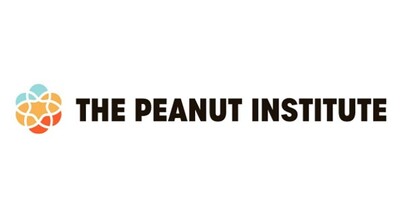Peanuts: A Lifesaving Legume
ALBANY, Ga., Feb. 19, 2025 /PRNewswire/ -- It's a little-known fact but peanut butter was originally invented in 1895 as a way to provide nutrients to older adults who couldn't chew meat. Today, peanuts and peanut butter continue to support healthy bodies and provide much-needed nutrition around the world.
"Another little-known fact is that peanuts and peanut butter are used globally to fight malnutrition," says Samara Sterling, Ph.D., a nutrition scientist and director of research for The Peanut Institute. "They're a low-cost food that has a nutrient-dense makeup of 19 vitamins and minerals plus protein and fiber that can save lives."
Ready-to-Use Therapeutic Foods or RUTFs are peanut-based products specially formulated to treat severe malnutrition by promoting weight gain, strength and overall health. With the support of world-wide partners, RUTFs have been a lifeline for millions of adults and children in impoverished areas.
And, while peanuts and peanut butter are used for critical nutrition interventions, their daily benefits are also significant.
Plant-based Advantages
For those looking to make dietary changes to improve their health, peanuts can make a difference.
Research has shown that opting for plant-based protein, like peanuts, versus animal-based protein is a healthy choice that's associated with a reduced risk of overall mortality and cardiovascular disease mortality.1 Other studies have found that switching from meat to plant protein can help increase life expectancy. 2
"I typically suggest people start with small modifications and then add on to those instead of implementing drastic changes all at once. For example, instead of suddenly becoming a vegetarian, start by doing a 'meatless Monday' and see how that goes. If you're looking for meatless recipes, our website has a number of peanut-based meals, including peanut tacos and peanut meatballs, that are both tasty and healthy," says Sterling.
A Long Life
The connection between peanuts and longevity has been found in the study of different "Blue Zones" around the world. These zones have life expectancies that are extraordinarily higher than average.
During an eight-year study, researchers found that many of the diets popular in the Blue Zones shared a common theme: they were usually plant-based; emphasized whole foods; and used beans and legumes to provide much of their protein.3
Disease Prevention
Longevity is just one of the benefits peanuts offer.
They've also been shown to be protective against diseases, including certain cancers (esophageal, prostate, colon, pancreatic and certain types of breast cancer),4-8 as well as effective in preventing and managing type-2 diabetes9 and reducing inflammation.10
As low-glycemic foods,11 peanuts and peanut butter are digested more slowly, which helps prevent sugar spikes that can lead to crashes. It's just one reason why the American Diabetes Association lists nuts as "Diabetes Superfoods."
Planet Friendly
When taking the health of the planet into consideration, peanuts are a smart choice.
The cultivation and production of peanuts create lower levels of CO2 compared to other protein sources, including meat, eggs and cheese12. Plus, since they're legumes, peanuts don't require as much water to grow as other nuts. In fact, they need less than half the water almonds do.13, 14
Finally, as George Washington Carver demonstrated centuries ago, peanuts replenish nitrogen in the soil, which makes them great for crop rotation. Peanuts also have a second life as their hulls, husks and oil are repurposed as animal feed and biodiesel.
For health news and tasty recipes that include peanuts and peanut butter, visit PeanutInstitute.com or follow Facebook, Twitter, Instagram, LinkedIn and Pinterest.
Based in Albany, Ga., The Peanut Institute is a non-profit organization supporting nutrition research and developing educational programs to encourage healthful lifestyles that include peanuts and peanut products. The Peanut Institute pursues its mission through research programs, educational initiatives and the promotion of healthful lifestyles to consumers of all ages. As an independent forum, The Peanut Institute is uniquely positioned to work with all segments of the food industry, the research community, academia, consumer organizations and governmental institutions.
Sources
![]() View original content to download multimedia:https://www.prnewswire.com/news-releases/peanuts-a-lifesaving-legume-302380304.html
View original content to download multimedia:https://www.prnewswire.com/news-releases/peanuts-a-lifesaving-legume-302380304.html
SOURCE The Peanut Institute



